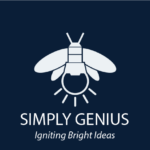
You might think you already know all about intuition, and I bet you do. The issue is not in the knowing but in the doing. This is where many fall short. This is where many people overlook their own genius potential. Today we’ll explore intuition and then learn the tools to cultivate it into mastery.
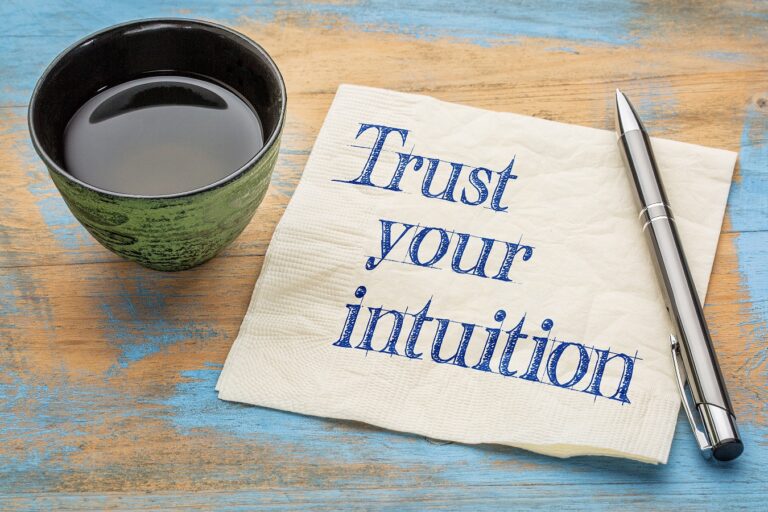
What is intuition? First, let’s understand what it is not. Contrary to most people’s definitions, Intuition and instinct are different.
In simple terms, intuition is knowing without knowing. It is one’s ability to observe, experience, experiment, collect, and connect unlikely things to create because somewhere inside your curious, explorative nature it’s calling you to pull at that thread of discovery.
Instinct is about survival. Let’s say that there is a mother rabbit who is out at night foraging for food to feed her young. Her instincts are what warn her about imminent danger from predators. It’s her fight-or-flight mechanism that helps to keep her alive. This would be referred to as trusting your gut.
Following your heart would be a more apropos analogy when speaking in terms of intuition.
We use our rational minds to problem solve. Our intuitive mind should be for discovery and exploration.
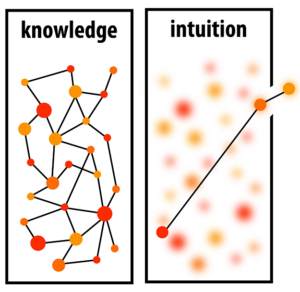
In stark contrast to the rational mind, intuition is more acute or resonant when you are still, take time to reflect, or engage in more passive activities.
Have you ever been to the movies, taking a walk, shopping at a farmer’s market, or visited another city or country, and suddenly things come together in an unexpected way? That’s your intuition trying to surface.
Usually, when people waffle back and forth between their available choices, they are a) weighing options with both their rational and intuitive mindsets, and b) afraid of getting it wrong.
Building Stronger Muscles of Your Inherent Intuitive Mind
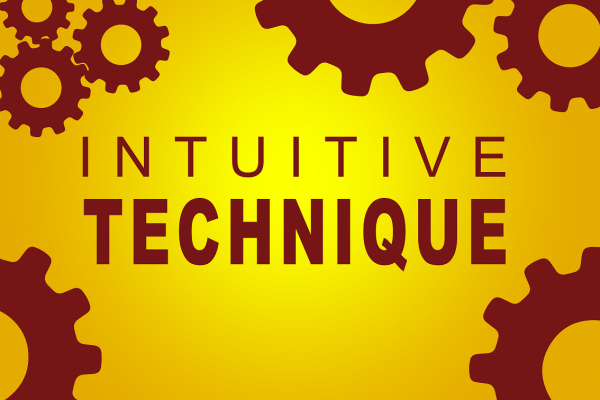
There are no special advantages intuitive people have over you. As I’ve said many times before, intuitive genius is in us all, you simply may not have exercised those mental muscles.
I should state here that genius is available to everyone and that it is not predicated on high IQ. Intellect is about solving, figuring out, and comprehending. Genius is about creating, exploring, and dreaming.
Day-to-day survival keeps your mind scattered, thinking about many things, multitasking, prioritizing, and meeting deadlines, which is typically about funneling down, or convergent thinking. And that makes it harder to get in touch with your intuitive mind.
Intuition is the opposite. It comes from having space, quieting the mind, relaxing, playing, and enjoying. I call this the “god mind.” This allows your mind to wander, unrestricted.
For those of you who shrink away from things too woo-woo, this is all about forms of meditation. One doesn’t need to shave their head or sit for many hours at a time, but it does require one to:
- Turn off outside distractions.
- Pause the use of electronic devices (yes, that includes television).
- Learn to relax!
Nature has always been a perfect way to quiet the mind, and so is being present. In other words, don’t just take a walk, but notice things around you when you do. Look, listen, feel, touch, observe. Listen to the sound of the gravel under your shoes. Feel the breeze and sun against your skin. Listen to the sounds of the wildlife around you. Look up high into the trees. Take it all in.
And let your intuition ask you questions. It doesn’t matter how silly or pedestrian they might seem, the important thing is to just let them come to you.
This can be done best when one allows themselves to daydream.
Bruce Lee said, “Act, don’t react.” This means that acting on your first thought helps to build strong intuitive muscles. Reacting relies on the rational mind. Master Lee was an intuitive martial artist. It is how he went beyond the mastery of other martial artists to surpass their limitations.
In scientific terms, on the one hand, intuition can’t really be accurately dissected by science. However, science can show us that intuition is indeed a viable process as indicated by many intuitive leaders in their fields. The issue for many is that intuition seems like stumbling onto something with no concrete evidence or proof.
This “sacred gift,” as Albert Einstein so beautifully stated, is a rich part of who we are naturally. And in his opinion (as exampled by the many Disruptors throughout history who have also acknowledged this gift), it should be practiced and cultivated as the dominant style of thinking. This does not mean one should forgo rational thought. It has a very important role. But intuitive thinking should not play second fiddle to rational thinking.
Getting It Wrong
Intuition doesn’t fail us. What fails us is our lack of experience with it. This goes hand and hand when deciding. Decision requires careful, reflective consideration, rationalized through analytical analysis, and logical reasoning. Yet, it is still intuition that’s the first thinking that comes to us, and we often dismiss it as whimsical thought. And the only reasons we do that are because we haven’t practiced listening to the intuitive voice, and additionally, society has drummed into our consciousness that rational thinking should override what it deems as silly, non-essential thinking.
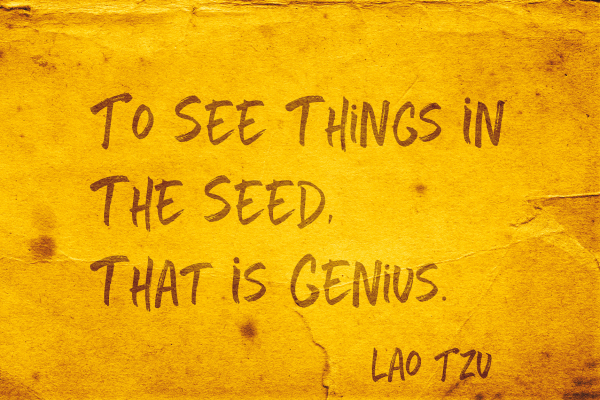
And because intuition is a “feeling,” it is seen as weak, ungrounded, and yes… feminine. Or as Carl Jung says, the Anima. We all have a masculine and feminine side. That does not mean weak or strong, it means Anima is usually related to the emotional, empathetic, sensitive, and creative aspects of a person, while Animus is related to the active, intellectual, and analytical side of the personality. And we all have both within us. One may be more dominant than the other at times, but both always exist.
What we “feel” can also be based upon the neurochemicals that fire when our brain subconsciously senses patterns. Then it draws upon what we feel, what we see, our memories, and our experiences.
Researchers at Leeds University show us through extensive research that intuition is a real psychological process in which the mind decides using past experiences and cues derived from your environment and from within. It just happens so quickly it feels like an impulsive reaction.
However, we should learn to listen to it more.
If you are someone who looks for patterns that’s okay. If you are seeking solutions that is just your rational mind at work. The best way to illustrate this is to understand that rational thinking is typically a funneling-down process, looking for conclusions. Again, this is referred to as convergent thinking. It wants to find the one or best answer because logic and reasoning demand it. But this can also be very limiting.
Intuitive thinking is expansive. It is explorative. It looks in many directions. This is divergent thinking. It keeps one’s mind open to many possibilities and opportunities. It looks beyond the “one” conclusion and instead discovers the road less traveled.

How Do You Know When Your Intuition Is Speaking?
This takes some practice, but like anything new, you’ll quickly find your balance, and may eventually ride without use of the handlebars.
Here are the tools you’ll need to start cultivating your intuitive process:
QUIET THE MIND – Avoid overwhelm. Let your thoughts whisper to you. Most of the time our thoughts are going outward, listening, reacting, engaging, interacting, talking, absorbing. None of it funnels inward. Your mind is in a constant state of reacting.
Quieting the mind allows one to become proactive because when your mind has a chance to rest and relax, when it isn’t in constant motion, thoughts begin to formulate, wander, play, philosophize, contemplate, and connect. In this way, you are funneling everything inward so your mind can build and create.
Calm is just one of the immediate benefits. The longer-term benefit of designing a quiet mind is that you build new thoughts and ideas, and you get to sandbox them to see where they lead. With no outside influences interrupting your thoughts, your mind will begin to wander. Let it. Just go with the flow and pay attention to what ideas come to you. At first, you might think about things you have to take care of, but when you can be still, when you can stop your inclination to react to everything as a way to feel you are being productive, then your mind will begin to open up.
Creative people are natural at tumbling thoughts and ideas around in their heads, playing and imagining. A great exercise to get you into this space is to bend things that don’t bend. It’s an old meditation trick to get your mind off your worries about work and obligations.
Picture a building and in your mind bend it into new shapes. Or visualize bending an automobile, a boat, or an airplane. Bend and twist things any way you want. The process of bending with your mind shuts out any outside distractions or unnecessary thoughts. Try this and see how you do.
EXPLORE – Close and far. I can’t stress this enough. When you travel outside of your usual surroundings and things that are comfortable and familiar, your mind opens up to absorb, learn, explore, and investigate. When you get out of your confining box of comfort you begin to see things differently. Your thoughts are open as is your curiosity. You need to become more adventurous, risk more, and dare and challenge yourself to try new and different experiences.
I don’t have enough time is a tired excuse that limits what you could be capable of. Instead, force yourself to explore and venture someplace new or different. Exploring could be trying a new restaurant or cuisine you might never have experienced before. Learn a new language. Drive to a new destination and take in all the sights. Interact with new and many different people. Interaction and new experiences are key. The more things and people you can add to your arsenal, the more your curious, creative, intuitive mind will begin to expand.
JOURNAL – Daydream, imagine, pretend, create, and most importantly, forget perfection. This is the abstract area of trial and error. Just go with the flow of your thoughts. And if you can draw (even if you’re not great at it), it helps to retain that idea or thought. When you journal as opposed to jotting something down on your smart device, you are more present and in touch with the moment and ideas flow faster.
Don’t censor or chastise your spelling. Just get it down. And let it flow. As with most things, in the beginning, you won’t know what to write about. So, here’s a tip. I got this idea from the movie “About Time.” In it, the father (Bill Nighy) tells his son (Domhnall Gleeson) to relive every day again, almost the same, but this second time noticing. Often, we are so wrapped up in what we view as important, that we miss the little moments, those tiny things that add to the overall experience.
When you do reflect, your days will suddenly become richer and more alive. Write about those little moments you glossed over or may have missed entirely. Somewhere in your mind, you will remember them. And taking the time to recall them will add value to how you think and see the world.
MEDITATE – While I do encourage you to meditate as often and for as long as possible, what I am really asking you to do here is to contemplate, ponder, theorize. And the only way to successfully do this is to… you guessed it, turn off the electronics for longer than you are comfortable with.
Here’s a short version I learned when practicing Kriya yoga: You want to breathe in from your nose (to your belly), then hold, then breathe out through your mouth. Start with a five-count then extend it to twelve or twenty seconds or more. Slowly count to five (in your mind) as you inhale, hold your breath for another five-count, then exhale for a five-count. Do this for about five minutes to start.
The secret is that because you are counting to yourself, your mind blocks out all outside distractions and thoughts. It’s a cool technique for beginners and gets even better when you can hold your counts for longer.
BE PRESENT – Learn to cultivate your five senses. Most of the time we rely on sight and hearing and we miss out on fully engaging with our surroundings. But here’s the cool thing. When you learn to use all of your senses on a regular basis and become good at it, you ignite old thoughts and ideas into new concepts and creations. By touching everything you come into contact with, fabrics, wood, concrete, metal, the leaves on a tree, animals, the leather or fabric of your car seats, the cold, creamy texture of melting ice cream, the stickiness of an orange soda, your senses begin to conjure thoughts and ideas that might never have come to you before.
And the same goes for all of your senses. Taste and smell are huge igniters of ideas. How many times do you just devour a meal without really smelling or even tasting it. You are missing out on so many wonderful experiences that can be instruments for new thoughts and ideas. Don’t let your senses go to waste. Practice paying attention to all of them and incorporating them at every opportunity. You’ll begin looking at things in a new light.
REMEMBER YOUR DREAMS – Training yourself to recall your dreams is a powerful tool for developing your intuitive mind. Dreams prove that we naturally think intuitively because that is how dreams typically unfold. There is very little rational thought that happens during the dream state. Dream events can trigger new ideas and different ways to look at something. There is always a hidden meaning in the experiences your mind creates during a dream.
With practice, you can actually pay attention when you are in a dream, and you can also know when you are dreaming. In other words, with enough practice, you can tell yourself when you are dreaming. The way to do this is to notice all the details. Pay attention to how you created someone you’ve never met before or visited a place you’ve never been before.
The mind is not divided fifty-fifty and should be seventy-thirty (intuitive 70%, rational 30%). And the reason many think we only utilize ten percent of the brain is because we very well might. If we don’t explore and expand the intuitive gift, we are potentially shutting off the important part of the brain where genius resides. And the only way to know that for sure is to develop both.
Every one of us has intuition but not all of us listen to it. It’s hard not to let someone else’s success influence your thoughts and decisions, especially when they seem so much more successful than you. However, what you’re doing is just chasing someone else’s success. Instead, what you want to do is learn that it’s okay to fall down, fail, and learn what’s right for you, not basing it on someone else’s process. You aren’t them. They are not you. Learn to design, build, and then follow your own path.
Intuition is powerful and is the highest form of genius we possess. And it should not be followed blindly. Instead, learn to cultivate, trust, listen to, and follow what it offers. In no time, you’ll understand, “Once I was blind, but now I see.”
Here’s a big tip: Keep the self out of the process when cultivating your intuition. Self is tied to ego. If you can learn to put self aside, you will be more likely to risk, adventure, explore, and experiment without worrying about the outcome or the consequences. This “freeing” state will allow your intuitive mind to go farther and imagine greater.
As the great Kathrine Hepburn once said, “Self is a dead end. If you always think about how you look, where you’re going, how you’re feeling, you will struggle. Instead, live life. Get out there. Do it.”